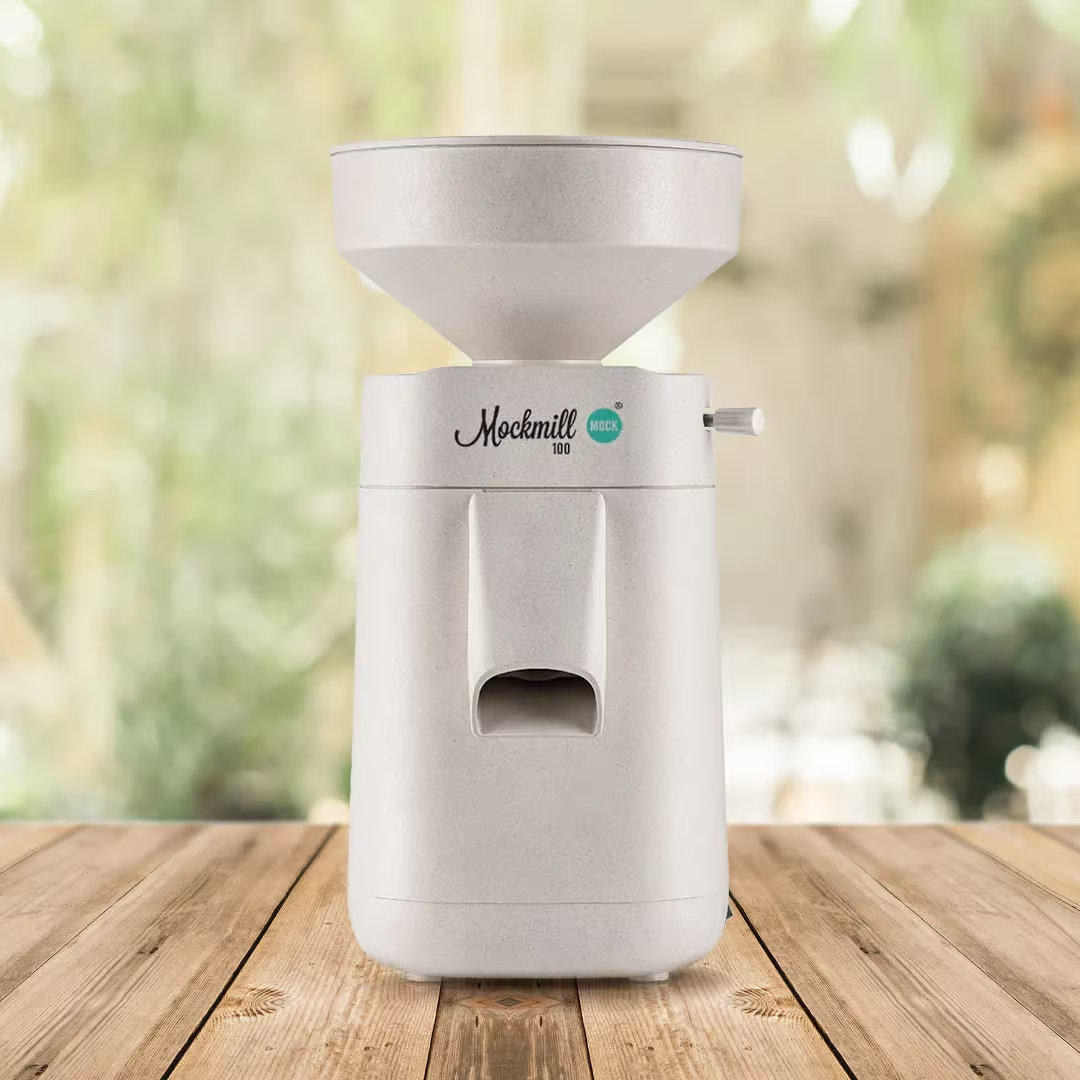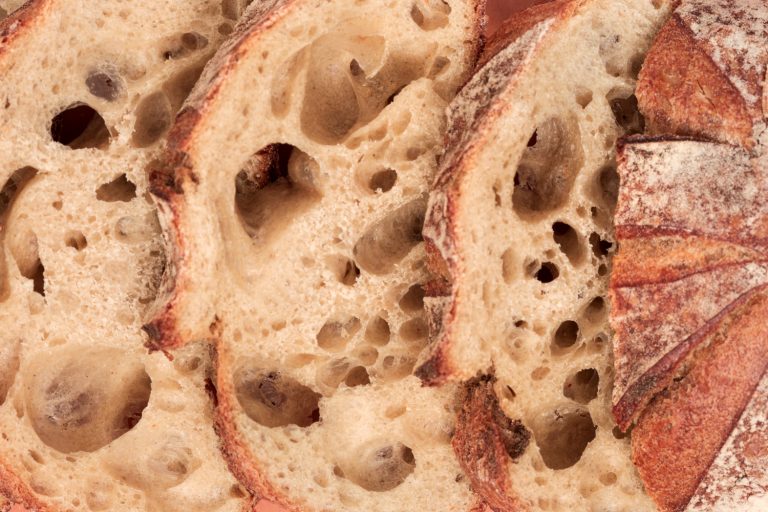Best Grain Mill for Sourdough: Top Picks for Fresh Milled Flour
Fresh-milled flour creates better sourdough bread quality with enhanced nutrition, flavor, and fermentation properties than store-bought options. Home bakers looking at the best grain mill options for sourdough will find that quality milling equipment guides them toward better bread texture and consistent results. More people now mill flour at home as they become aware of fresh-ground flour’s benefits in sourdough baking.
This detailed piece reviews the best grain mills for sourdough baking and compares them in grinding capacity, fineness settings, and ease of use. You’ll learn about stone versus impact mills, find helpful tips about milling flour at home, and understand how to choose suitable grains that match your baking needs. The content also covers proper grain storage methods and recipe adjustments for fresh-milled flour.
Benefits of Milling Your Flour
Home flour milling offers substantial benefits beyond simple bread making. When they understand these advantages, bakers can make informed choices about their sourdough experience and equipment selection.
Improved Nutrition and Flavor
Home-milled flour offers much better nutrition than store-bought alternatives. Fresh-milled flour retains 40 of the 44 essential nutrients required for life and packs a powerful nutritional punch. Fresh milling prevents nutrient loss through oxidation. Studies show that:
- Nutrients begin degrading within 24 hours of milling
- 40-45% of nutrients are lost in the first day
- After three days, over 95% of essential nutrients are lost through oxidation
Fresh-milled flour creates exceptional-tasting sourdough bread. Aromatic compounds in newly ground grain create complex flavors that taste nutty and cream-like. These qualities make the bread-eating experience truly memorable.
Cost Savings
The economics of home milling versus store-bought flour reveals the most critical long-term savings:
| Type of Flour | Cost per 5 pounds |
|---|---|
| Home-milled organic | $6.14 |
| Store-bought organic | $9.95-$19.81 |
| Bulk organic | $7.60 |
The original investment in a grain mill requires upfront costs, but knowing how to store whole grains creates economic advantages. Whole grains maintain their nutritional value for years with proper storage that eliminates waste from expired flour and reduces purchase frequency.
Versatility in Flour Types
Home milling creates endless possibilities for sourdough baking. You can try different grains to make unique flour blends.
Ancient grains like einkorn, spelled, and Kamut have unique flavors and health benefits. Hard white wheat makes lighter, softer bread, and hard red wheat gives you hearty, full-bodied flavors. You can adjust your mill’s settings to make everything from fine pastry flour to coarse meal that suits different baking needs.
Fresh-milled flour’s enzymatic activity improves sourdough fermentation. This natural process helps develop the dough and creates a better texture and crumb structure. You can control your sourdough’s characteristics by picking specific grain varieties to get your desired protein content.
Top Grain Mills for Sourdough Baking
A quality grain mill is crucial for achieving the best results in sourdough baking. The market’s top performers provide unique advantages for home bakers.
Mockmill 100
The Mockmill 100 combines a compact design with powerful grinding capabilities. This German-engineered mill has impressive features.
- Ceramic-corundum grinding stones
- Settings you can adjust for different flour textures
- A footprint more petite than your average toaster
- Whisper-quiet operation that outperforms other mills
The mill grinds 100g per minute, making it perfect for home bakers. The manufacturer backs this workhorse with a solid 6-year warranty. The stones clean themselves automatically, so you’ll spend less time on maintenance and more time baking.
KoMo Classic
Austrian artisans create the elegant and highly functional KoMo Classic. The mill grinds 8-9 ounces of flour each minute with solid beechwood construction. A powerful 360-watt motor runs continuously and perfectly serves families of 3-5 people.
KoMo’s 12-year warranty demonstrates their product’s exceptional quality. The mill’s industrial-grade grinding stones consistently perform as you use them regularly.
Nutrimill Harvest
The Nutrimill Harvest showcases modern breakthroughs in grain milling technology. Its specifications include:
| Feature | Detail |
|---|---|
| Motor Power | 450 Watts |
| Grinding Capacity | Variable |
| Housing Material | Sustainable Bamboo |
| Warranty | 5 Years |
The Harvest stands out with remarkable versatility. It effectively processes hard wheat and gluten-free grains. The mill’s corundum stones, almost as hard as diamonds, produce exceptional flour quality and preserve the grain’s nutritional value.
WonderMill
The WonderMill stands out from other mills by using unique micronizing technology instead of traditional stones. It processes 100 pounds of flour per hour and works excellent for high-volume baking.
Key advantages include:
- Complete containment system that keeps flour dust contained
- Self-cleaning design
- Lifetime warranty
The mill excels at handling larger grain volumes, making it a great choice, especially when you must make multiple loaves regularly. Its industrial-grade components ensure consistent performance even under demanding conditions.
[Photo placement recommendation: Include product images above each mill’s description]
These mills are the best options for sourdough enthusiasts, and each one offers unique advantages based on your specific baking needs. Your choice will depend on how often you bake, how much flour you just need, and the available counter space.
Key Features to Consider
The technical specifications and practical features of a grain mill will help you make a smart investment decision for sourdough baking. Every feature plays a significant role in determining the milling experience and final flour quality.
Grinding Capacity
[Photo: A grain mill showing its hopper and collection container]
The grinding capacity affects how smoothly and quickly you can bake. Modern grain mills come with different grinding speeds:
| Mill Type | Capacity (grams/minute) | Hopper Size |
|---|---|---|
| Impact Mills | 150-200 | 1200g |
| Stone Mills | 100-150 | 850g |
| Hand Mills | 50-75 | 600g |
Large-capacity mills like the Nutrimill Plus can hold up to 24 cups, which is great for batch baking. Most home bakers find that mills grinding 100-150 grams per minute are perfect for their needs.
Fineness Settings
[Photo: Close-up of mill adjustment mechanism]
Adjusting flour texture is crucial when making different sourdough recipes. Stone mills give you better precision control through their adjustment mechanisms. The Mockmill’s “Easy-adjust texture control knob” shows how modern innovation has improved fineness adjustment.
Quality mills typically include:
- Settings that range from pastry-fine to cracked grain
- Reliable particle sizes at every setting
- Easy milling of different grain types without adjustments
Ease of Use and Cleaning
[Photo: Disassembled mill showing cleaning access]
Different models need varying levels of maintenance. Impact-chamber mills like the Wonder Mill clean themselves and need very little upkeep. Stone mills need occasional cleaning but are more accessible to operate.
The cleaning process usually includes:
- Regular brushing of grinding surfaces
- Deep cleaning of collection containers from time to time
- Inspection of grinding mechanisms
- Maintenance of adjustment mechanisms
Noise Level
[Photo: Sound meter reading next to operating mill]
Noise levels play a vital role, particularly in apartments. Tests show notable differences between various models:
Stone Mills:
- Mockmill 100: 91dB at 1 meter
- KoMo Classic: 89dB at 1 meter
Impact Mills:
- Wonder Mill: 82dB at 1 meter
- Nutrimill: Operates at noise levels matching a vacuum cleaner
These measurements are comparable to those of common household appliances. Stone mills create more noise because of their grinding mechanism, while impact mills feature built-in noise-reduction components. A standard bread recipe requires 3-10 minutes of mill operation, which makes noise a manageable issue for most people.
Home bakers must balance their need for speed against noise levels. Many users choose high-capacity mills to minimize running time. Others prefer quieter models that work better in apartments or during early morning baking.
[Photo: Comparison of different mills in operation]
Stone vs. Impact Mills: Pros and Cons
Bakers must know the critical differences between stone and mechanical mills to choose the right equipment for their baking trip. These differences affect flour quality and baking results in unique ways.
[Photo: Traditional stone mill mechanism]
Stone Mills
Stone mills grind grain into flour using two millstones, a centuries-old method. These machines run at 450-500 watts and produce flour at a steady pace. Due to this slower grinding method, the grain’s natural oils and nutrients remain preserved.
Stone mills come with several distinctive features. Users can adjust the gap between stones to create different textures. The mills operate at lower temperatures and excel at producing everything from coarse to ultra-fine flour. Their design works best with small to medium batches.
The mill’s grinding stones need occasional dressing to perform at their best. Most stone mills feature self-sharpening grooves that maintain consistent grinding patterns for years.
[Photo: Modern impact mill internal mechanism]
Impact Mills
Impact mills use high-speed steel mechanisms to turn grain into flour through centrifugal force. They run at 1200-1500 watts and grind substantially faster than traditional options.
| Feature | Impact Mills | Stone Mills |
|---|---|---|
| Motor Power | 1200-1500W | 450-500W |
| Grinding Speed | 150-200g/min | 100-150g/min |
| Heat Generation | Higher | Lower |
| Maintenance | Self-cleaning | Regular cleaning |
| Texture Control | Limited | Extensive |
Impact mills produce fine flour quickly and serve high-volume bakers well. Their self-cleaning mechanisms need minimal maintenance, making them perfect for busy households. The mills’ biggest drawback is their limited texture adjustment options compared to stone mills.
[Photo: Sourdough bread made with stone-ground flour]
Which is Better for Sourdough?
Your choice between stone and impact mills for sourdough baking comes down to what matters most.
Stone Mills Excel In:
- Better temperature control while grinding
- Keeping natural grain oils intact
- Making varied texture profiles
- Creating flour with the best enzymatic activity
Impact Mills Advantage:
- Quick production for large batches
- Fine flour texture that stays consistent
- Less maintenance needed
- More budget-friendly to start
Stone mills work better for dedicated sourdough bakers because they keep grinding temperatures low and preserve helpful enzymes. The slower grinding keeps the grain’s natural properties intact, which improves fermentation and flavor development in sourdough bread.
But impact mills make more sense for bakers who:
- Make multiple loaves each day
- Need consistently fine flour
- Want less maintenance work
- Must handle higher volumes
The temperature factor makes a big difference in sourdough baking. Stone-ground flour comes out at 85-95°F (29-35°C), while impact-milled flour can hit 120-130°F (49-54°C). These temperature differences change how the flour’s enzymes work and how it ferments.
[Photo: Temperature comparison of freshly milled flour from both mill types]
Professional bakers say stone-ground flour gives them sourdough with:
- More complex flavors
- Better fermentation results
- Crispier crusts
- More even crumb structure
Your choice will depend on how often you bake, what kind of flour you want, and your specific needs. Many serious sourdough enthusiasts prefer stone mills because they’re versatile and make flour that brings out the best flavors during fermentation.
[Photo: Side-by-side comparison of stone and impact mills]
Tips for Milling Flour at Home
Your sourdough baking results will improve significantly when you select, store, and adapt recipes with the correct grain choices. Learning these fundamentals will give you the best outcome while keeping all the nutrients that fresh-milled flour offers.
[Photo: Various whole grains in clear storage containers]
Choosing the Right Grains
Your sourdough bread’s quality depends significantly on grain selection. With their 12-14% protein content, hard wheat varieties serve as perfect ingredients for sourdough baking. Bakers need to evaluate these factors:
| Grain Type | Protein Content | Best Use Case |
|---|---|---|
| Hard Red Wheat | 13-14% | Hearty sourdough |
| Hard White Wheat | 12-13% | Lighter crumb |
| Spelt | 12-13% | Ancient grain breads |
| Kamut | 14-15% | High-protein loaves |
Quality results require grains that meet these standards:
- No visible damage or discoloration
- Proper drying with moisture content under 14%
- Reliable supplier sourcing
- Whole grain storage until milling time
[Photo: Proper grain inspection process]
Proper Storage of Whole Grains
Climate and temperature play a significant role in how long grains stay fresh. The gold standard to store whole grains depends on environmental conditions that prevent spoilage and keep pests away.
Temperature considerations:
- Cool storage (60-70°F/15-21°C) makes grains last longer
- Warm conditions make grains spoil faster
- Freezer storage (0°F/-17°C) keeps pests away completely
- Room temperature storage needs more frequent rotation
[Photo: Various storage containers and methods]
Your storage containers need to be:
- Airtight and moisture-proof
- Food-grade quality
- Big enough to reach inside easily
- Sealed securely
People living in humid areas need extra care. Condensation management becomes vital as grains move between different temperatures. To prevent moisture from building up, let your cold-stored grains reach room temperature in sealed containers before opening them.
[Photo: Proper grain temperature adjustment process]
Adjusting Recipes for Fresh Milled Flour
Freshly milled flour works differently than store-bought options, so you must modify your recipes to get the best results. The flour shows more enzymatic activity and absorbs more water, so you must make specific changes.
Here are the recipe changes you’ll need:
| Aspect | Adjustment Needed | Reason |
|---|---|---|
| Hydration | Increase 5-10% | Higher absorption |
| Fermentation | Reduce 15-25% | Enhanced enzyme activity |
| Mixing Time | Decrease 20% | Different gluten development |
| Salt | Standard ratio | Maintains dough strength |
[Photo: Side-by-side comparison of dough made with fresh vs. store-bought flour]
Temperature control is vital when working with freshly milled flour. Milling heats up the flour, which can change how it ferments. Let your fresh flour cool down to room temperature before you add it to your sourdough.
Here’s a practical guide to adapt your recipes:
- Start with proven recipes
- Adjust one variable at a time
- Document all changes
- Monitor fermentation closely
- Think about seasonal adjustments
[Photo: Temperature monitoring of fresh milled flour]
Storage time affects flour performance significantly. You’ll get the best results if you:
- Use within 24 hours to get maximum nutrition
- Store unused flour in airtight containers
- Refrigerate for up to 1 week
- Freeze for more extended storage (up to 6 months)
Bakers switching from commercial to freshly milled flour should expect the following:
- Faster fermentation
- Different dough handling characteristics
- Better flavor development
- Shorter bulk fermentation times
[Photo: Proper flour storage methods]
Watchfulness and proper storage help prevent pests. Regular checks help spot problems early. If you find weevils:
- Throw away affected products right away
- Clean storage areas well
- Freeze new grain purchases as a prevention
- Keep proper storage conditions
Grain quality directly relates to your final bread’s characteristics. Premium quality grains that are stored well and freshly milled will give you better sourdough bread with richer flavors and higher nutritional value.
[Photo: Quality comparison of different grain storage methods]
Conclusion
Home milling is a game-changer for sourdough severe bakers. It makes better bread through improved nutrition, flavors, and perfect fermentation. Your choice between stone and impact mills mostly depends on your baking needs. Stone mills are great at keeping helpful enzymes alive and staying cooler during grinding, vital for sourdough development. Good equipment, the right grain choice, and storage methods build a strong base for making exceptional sourdough bread.
When picking your mill, you need to think over grinding capacity, fineness settings, and upkeep needs. Bakers who welcome this hands-on practice will enjoy healthier, tastier bread and save money over time. Raise your bread and pizza game with an authentic artisanal sourdough starter from The Yeast We Can Do – email john@theyeastwecando.com and let our premium starter take your baking to new heights. It works perfectly for home bakers and restaurant owners who want that unique sourdough character.
FAQs
What type of grain is most suitable for sourdough bread?
For sourdough, gluten-rich grains such as spelled einkorn, rye, and wheat are typically the best choices. However, you can also use gluten-free grains like buckwheat, amaranth, brown rice, and teff. These might require a boosted starter initially to perform well.
Is it necessary to sift freshly milled flour?
Sifting freshly milled flour can adjust its texture and purity. Different mesh sizes, such as 40-mesh or 60-mesh, will determine how much bran and germ are removed. A finer mesh, like 60-mesh, will produce a whiter, finer flour by sifting away more bran and germ.
What distinguishes a grist mill from a flour mill?
Both grist mills and flour mills grind grain. The term “grist” specifically refers to any grain ground into flour. Grist mills can produce flour, meal, and animal feed from various grains, including corn.
What became of the WhisperMill grain mill?
The Grainmaster Whispermill Company, based in Utah, ceased operations about eight years ago and no longer exists. Consequently, the production of the Whispermill grain mill was discontinued for over a year following the company’s closure.
Which grain mill is recommended for someone who primarily bakes sourdough?
Famous home grain mills include the Mockmill, Nutrimill, and Wondermill, which are designed for people who primarily bake sourdough. Each of these mills has features and benefits suitable for different baking needs and preferences.






